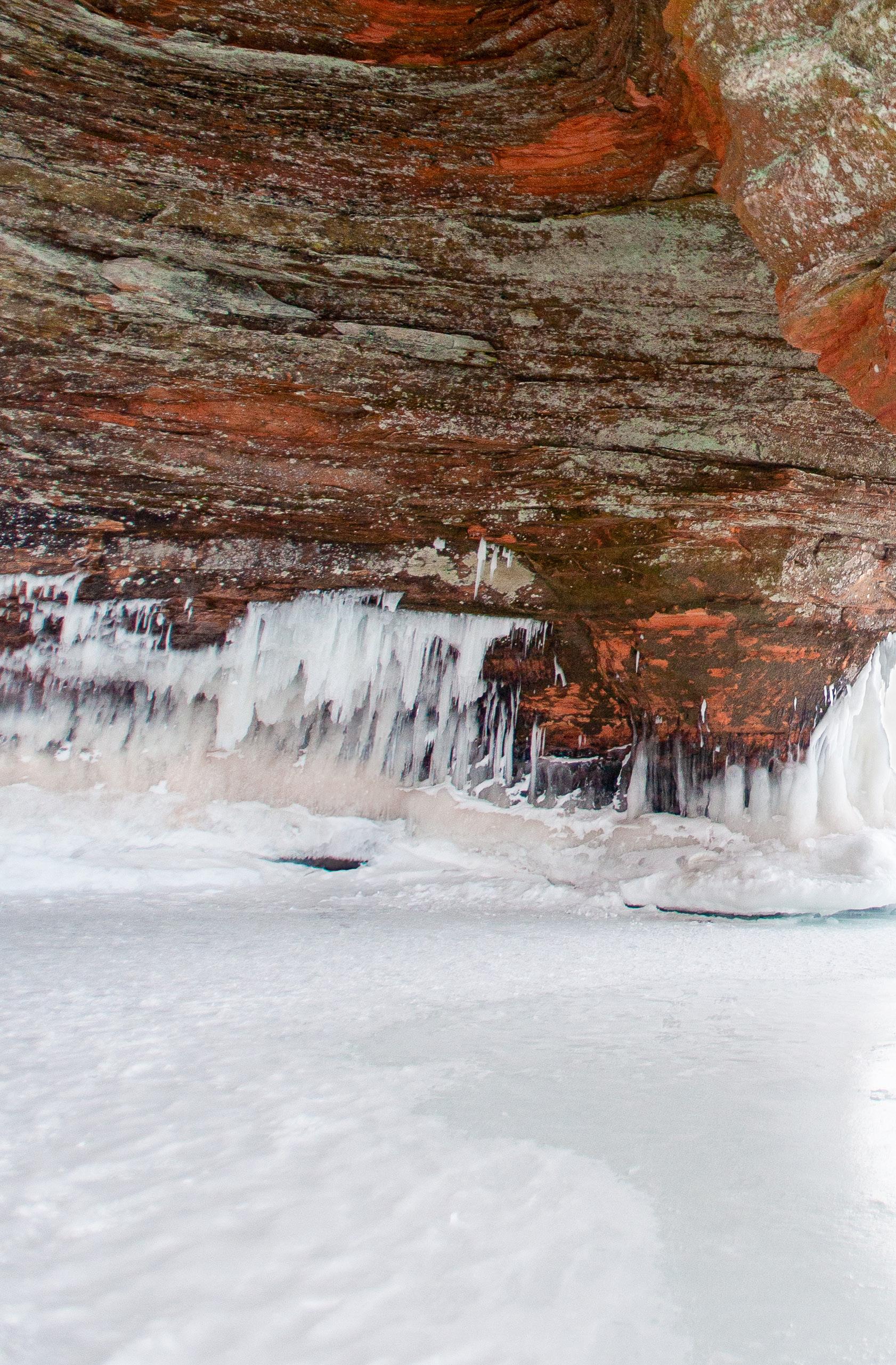








A healthier planet and a brighter future require human participation. That’s why you’ll find programs like sustainable community development, natural resources, and business management, in our lineup.
Northland College was one of the first schools in the US to offer an environmental studies program. Since the 1972 implementation of our environmental mission, Northland has committed to sustainability and the environment. Our campus is full of hidden sustainability features! For example, Ponzio Stadium has a storm water retention tank beneath it— capturing rain and snowmelt from campus parking lots before slowly releasing it back into the ecosystem. Today, most of the College's academic courses incorporate sustainability and liberal arts concepts. We are consistently ranked among the top green colleges and universities nationwide.

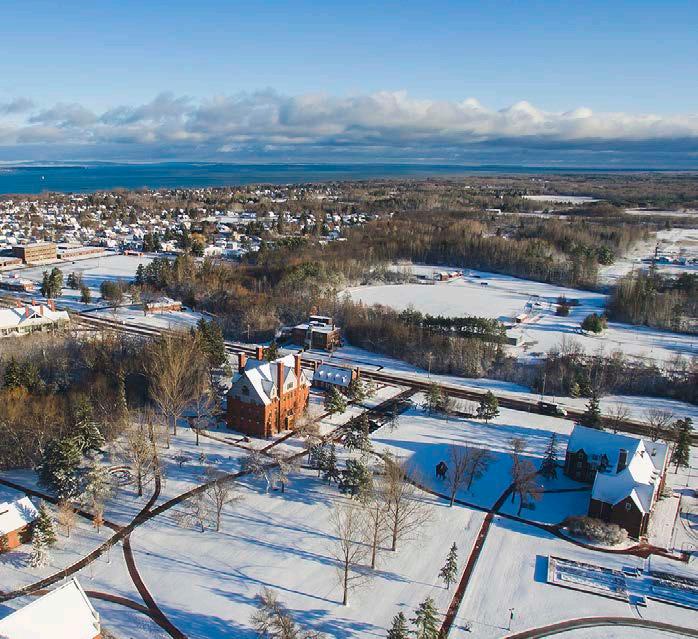



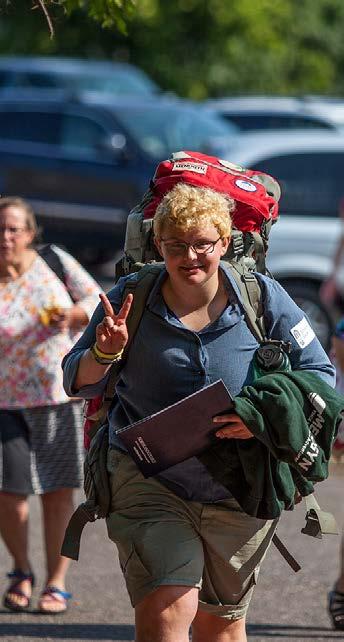

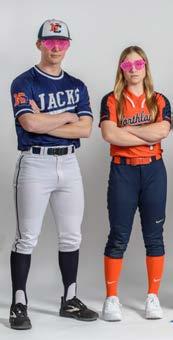




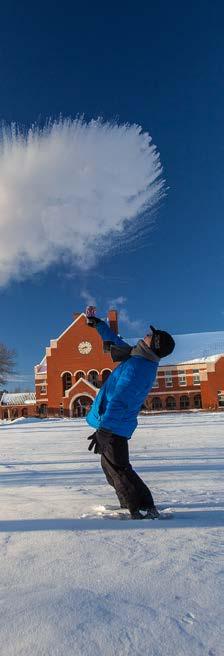
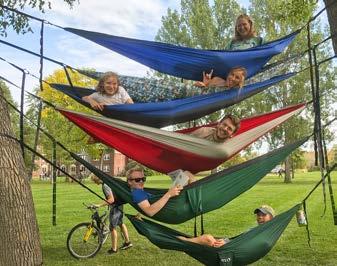


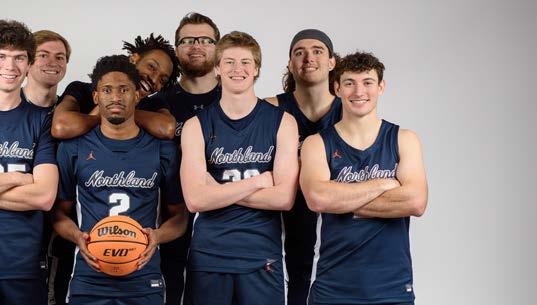

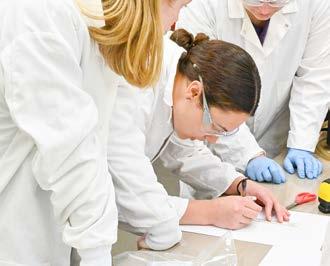
There are tons of opportunities to get involved on campus. Whether you prefer to go to a game, join an adventure with Outdoor Pursuits, run for student office with the Northland College Student Association, enjoy local theater, or lounge in a hammock, there are always sights to see and things to do. You can hang out at the Indigenous Cultures Center, try out the climbing wall, browse the sixty-five thousand books in Dexter Library, jam with a band, or write for the student newspaper. There are clubs, organizations, and events all across campus to explore. Talk to an admissions counselor or student ambassador to learn more.
On campus, you’ll find things like the Sunshine Community Bike Shop, the Outpost gear rental, the ReUse Room free thrift shop, and our stateof-the-art fitness and recreation center. You can also wander through the ravine, explore the Nordic ski trails, and enjoy the beautiful orchards and gardens.
All residence halls have kitchens, lounges, games to borrow, residential life staff on duty every night, and free laundry. There’s even a gamecleaning room on campus for students who hunt.
Northland College students are curious, self-motivated, high-achieving, and passionate. They come here on a quest for community, knowledge, friendship, and skills.
For every ten students, there is one professor. That means small classes with professors who love what they teach and have time to answer your questions and guide you through your college career.
The Northland academic community is unique, close-knit, and energizing. Students often talk with professors and participate in classroom discussions that continue after class is over. Professors and students regularly work together on research projects.
In addition, each student at Northland College takes a selection of courses from across the arts, sciences, and humanities. This requirement provides a wellrounded foundation of knowledge and skills.
Our students learn that geology and writing can be closely linked, that sociology can create better business leaders, or that beekeeping on campus can teach you about creative adaptability. Time and again, disparate interests cross in unique and surprising ways.
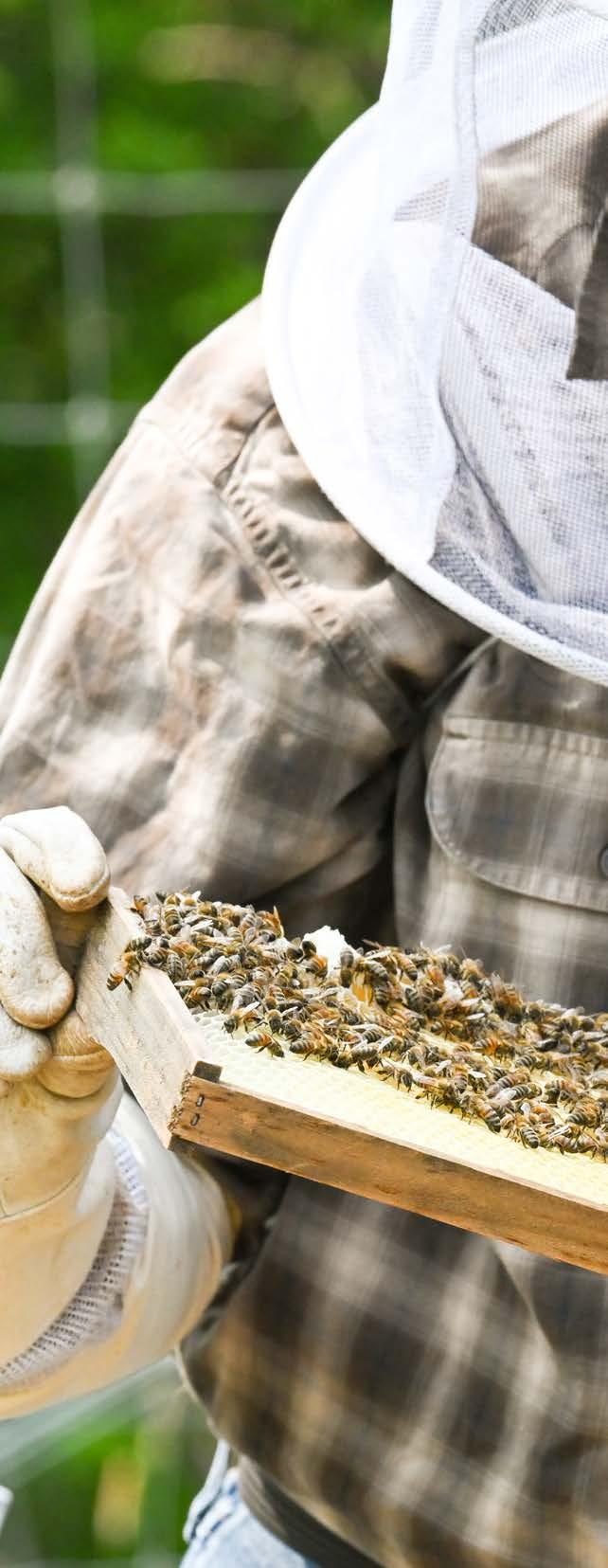
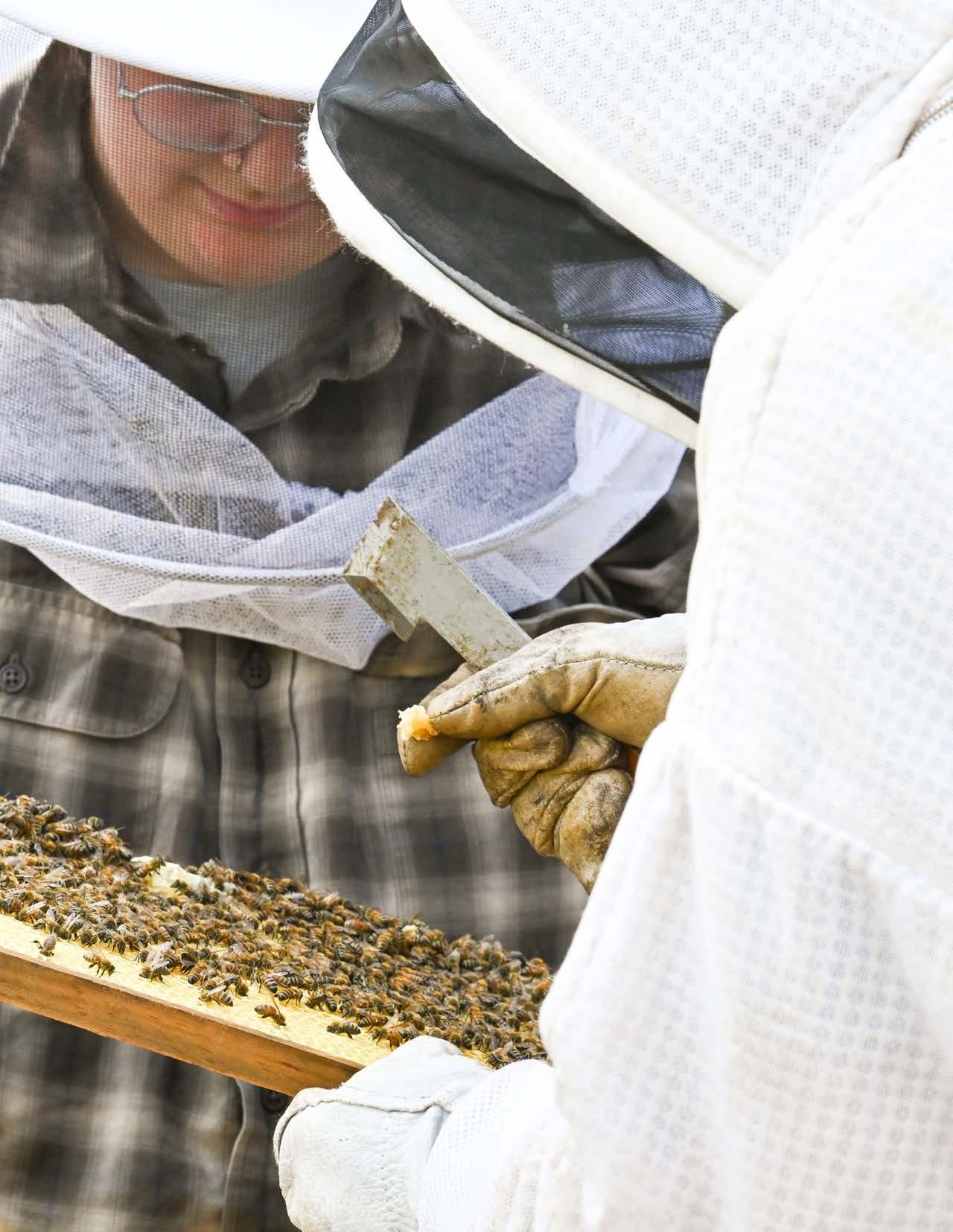

“Northland College's Outdoor Orientation provides incoming students with an optional pre-orientation outdoor experience that helps socially integrate and guide new students as they transition to life at Northland. The program’s focus is on fostering an abiding sense of connection to the north woods, while also creating a safe and inclusive emotional environment to begin exploring what it means to be a member of the Northland community.
Our trip leaders are returning students who are trained in outdoor living and leadership skills, wilderness medicine, and backcountry emergency response—student leaders who are passionate about creating inclusive and supportive communities. They are also kind and thoughtful people who are super excited for this opportunity to share some of what they love most about Northland with new members of the community.”
Dr. Evan Coulson Director of Orientation and Service Programs
Outdoor Orientation trips come with a comprehensive gear list. If you don’t have the gear, don’t sweat it. The Northland College Outpost can supply free backpacks, sleeping bags, and some personal gear. Run by students, the Outpost will become your onestop shop for outdoor gear from cookstoves to kayaks.
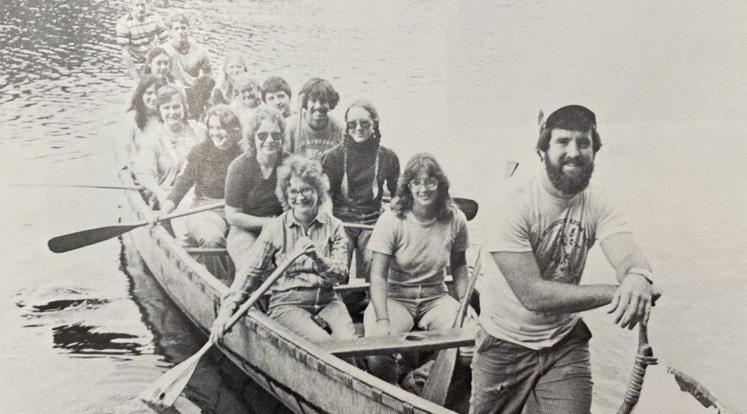

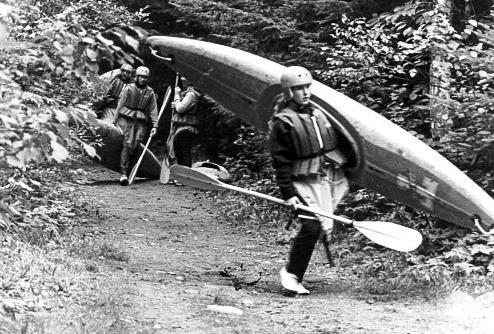
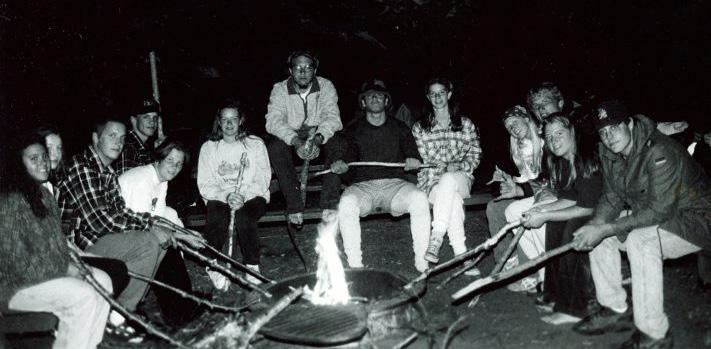
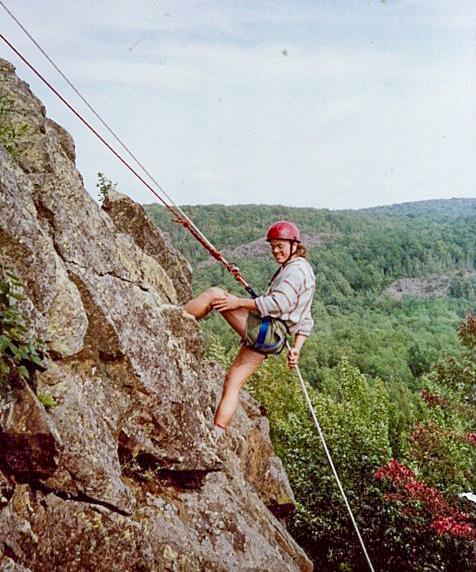
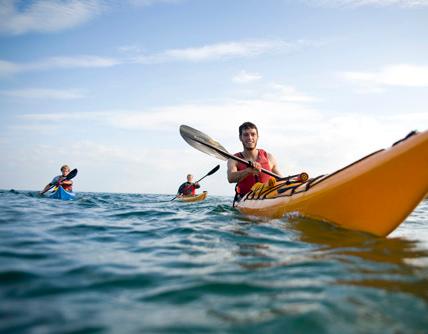




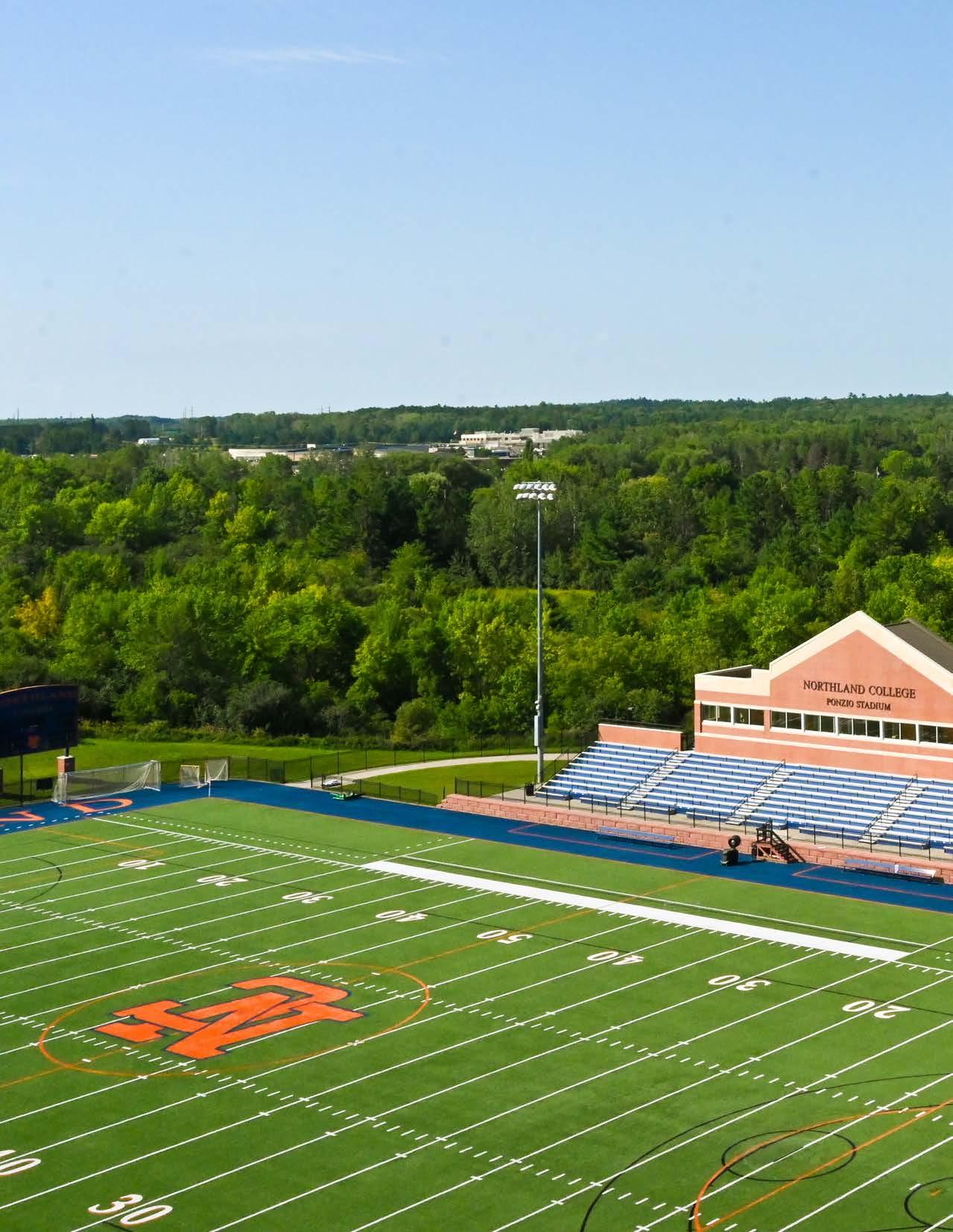
When you join Northland as a student athlete, you’re not just joining a team—you’re finding a strong community and a home away from home. Our athletic facilities provide the perfect setting for forging lifelong bonds and achieving both personal and athletic excellence.
Learn more about Northland College Athletics, find the full list of sports, and fill out a recruitment questionnaire at northland.edu/athletics.
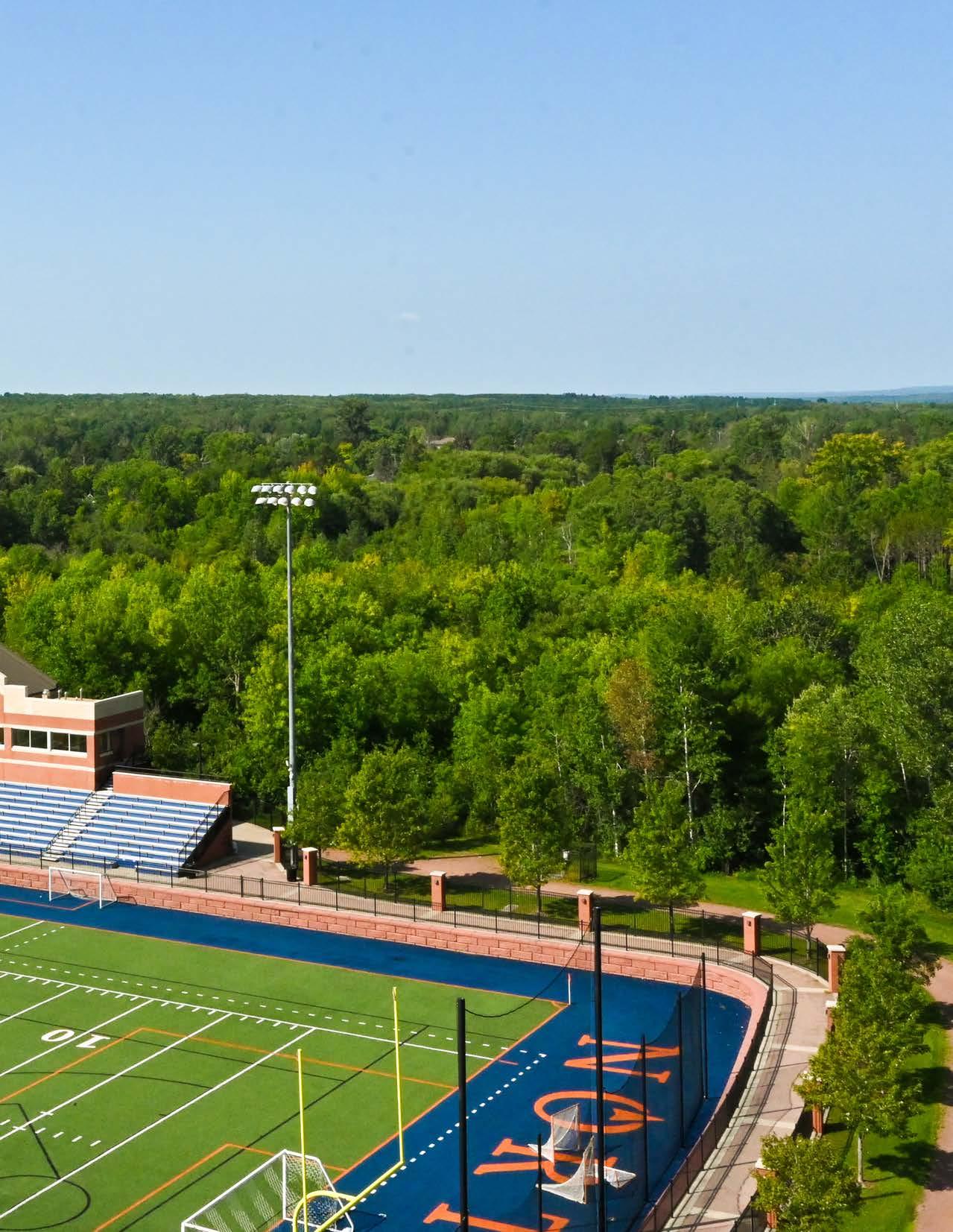

“I chose Northland because it felt like a perfect setting for me. Both the people and the surrounding environment made me feel welcome and excited to join this community.”
Kodie Rempp ’25 Harrison, Nebraska Volleyball and Basketball
Take a short drive from Northland’s campus and you’ll find exciting destinations and events in every direction and any season.
Big Top Chautauqua, on the slopes of nearby Mt. Ashwabay, is the world’s largest tent show and has featured performers like Johnny Cash, Brandi Carlile, and Charlie Berens.
Big Manitou Falls in nearby Superior, Wisconsin, is the fourthhighest waterfall east of the Rocky Mountains.
Hawk Ridge in nearby Duluth, Minnesota, is the second-best place in the country to watch fall raptor migrations. (Think hawks, osprey, and eagles—not dinosaurs.)
The annual Chequamegon Mountain Bike Festival hosts one of the largest off-road bike races in the country.
The nation’s largest cross country ski race, the American Birkebeiner, is held about an hour south of campus. Each year, two Northland students get to participate for free.
Hundreds of participants (including many Northland students and alumni) gather each February to ski, snowshoe, or walk in Book Across the Bay. This iconic nighttime race in Ashland follows a course lit by ice candles across Chequamegon Bay, finishing with a roaring bonfire and music. You may even see the northern lights!

1.5M ACRES CHEQUAMEGON–NICOLET NATIONAL FOREST

300 MILES OF CLASS-A TROUT STREAMS
182 SUNNY DAYS PER YEAR
11 ALPINE SKI HILLS
30 BEACHES
17 ORCHARDS

Your curiosity may drive you to look for opportunities to study off campus, in other countries or other states. There are so many ways to extend your Northland education far beyond Wisconsin through partner organizations or tailor-made programs.

May Term is an optional four-week term at the end of the academic year. This term allows students to participate in a variety of different on and off campus courses, get credit for an internship, or study abroad.
The EcoLeague is a consortium of six liberal arts colleges dedicated to environmental stewardship, social change, and building a more sustainable future. You can spend up to two semesters at any other EcoLeague school while enrolled at Northland.
• Alaska Pacific University (Alaska)
• College of the Atlantic (Maine)
• Dickinson College (Pennsylvania)
• New College of Florida (Florida)
• Northland College (Wisconsin)
• Prescott College (Arizona)
Since 2003, the Parsonage Fund has awarded more than $300,000 in micro-grants to students to help fund art, research, travel throughout the world, and adventure.
Northland partners with the University of Kansai Gaidai in Okinawa, Japan, and The University of Glasgow in Dumfries, Scotland. Students can spend a semester studying abroad at one of our partner universities taking courses in a variety of subjects.
Center for Ecological Living and Learning
Northland students can study in Costa Rica, east Africa, Ecuador, Iceland, Nicaragua, or Scotland.
Round River Conservation Studies
Northland students can also study in Belize, Botswana, British Columbia, Chile, Mongolia, or the western United States.

Anishinaabe legend says that Nanabozho threw great handfuls of sand from the dam that created Chequamegon Bay at an escaping beaver and, in the process, formed the twenty-two Apostle Islands. The Apostle Islands National Lakeshore, established in 1970, protects these jewels in Wisconsin’s crown and draws thousands of visitors each year.

The distinguished professors at Northland College are here to teach, inspire, and support you from day one to Commencement and beyond.

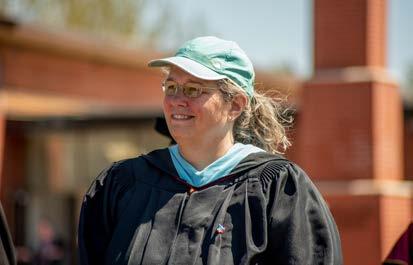
Sharon Anthony Environmental Science
Dr. Anthony is passionate about working with organizations to study environmental issues in the region. She's worked with the Wisconsin DNR, National Parks Service, and the Bad River Tribe in studying air and water quality in the Chequamegon Bay area.
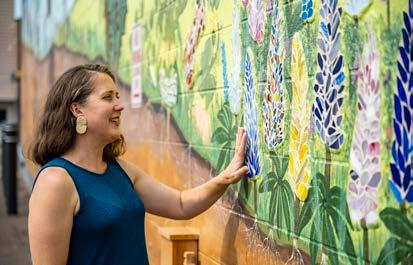
Nicole Foster
Dr. Foster and her students collaborate with local partners to create more inclusive, vibrant, and sustainable communities. Dr. Foster's students worked with the City of Washburn to revitalize their downtown by analyzing data, holding public engagement events, and creating recommendations.

Megan Salmon-Tumas Earth Science
Dr. Salmon-Tumas, assistant professor of climate science, worked to help build the College's 2024 Climate Action Plan. By involving students in every aspect of the college’s climate action work, Northland is living its mission of preparing students to create a more sustainable and just future.
“Chemistry plays a crucial role in water health, which is why my research focuses on reducing the environmental impact of aquatic pesticides. These pesticides are essential for controlling invasive species such as zebra and quagga mussels. Our research aims to develop new methods for applying pesticides in a more localized manner, specifically targeting areas with invasive mussels. Students in my lab are working on creating new formulations to make aquatic pesticides more effective against invasive species while minimizing impacts on non-target organisms.”

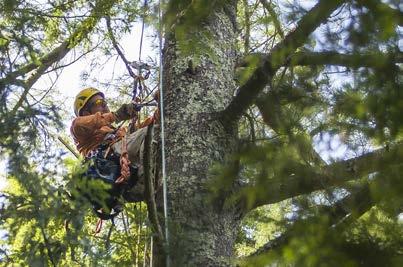
Jonathan Martin Forestry
Dr. Martin works in many different capacities to help students understand how trees and forests work and how they interact with the climate and with disturbances like wildfire. He also works in applied forestry by helping to restore forests and manage them sustainably.



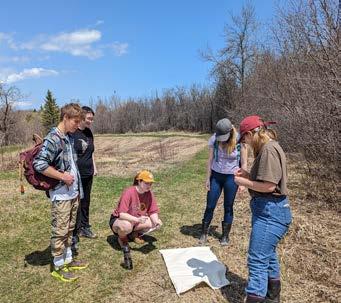

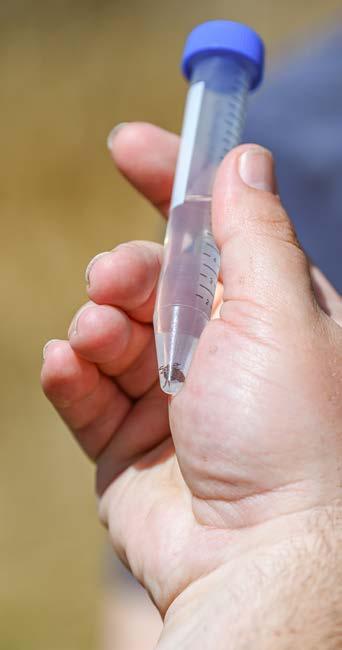






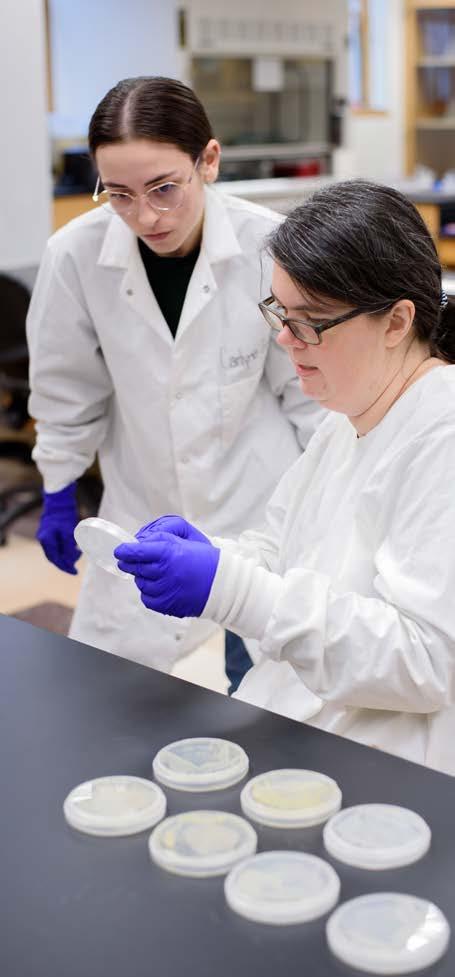
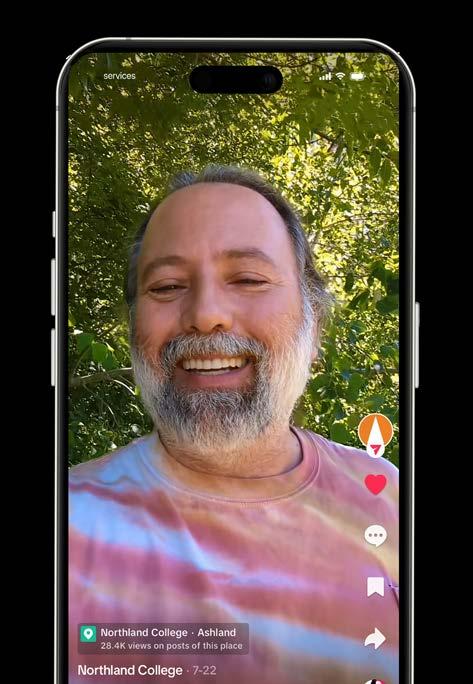
Dr. Geoffrey Vincent has created TikToks to teach people about ticks, illnesses, pandemics, and the research he is doing with students to better understand the big impact of these tiny creatures.
As Dr. Vincent explains, “My current research includes surveillance of tick populations and their respective pathogens. Species abundance and locations are measured at various locations in local counties and then tested for important disease-causing agents such as Borrelia burgdorferi (Lyme disease) and Rickettsia species (Rocky Mountain Spotted Fever).”
Students can take their field research to the classroom where they work side by side with Dr. Alissa Hulstrand. Students bring back samples from the real world and conduct classroom research in Northland College labs to further understand the importance and scope of the micro world around us.
Dr. Hulstrand says, “I love to incorporate students into real-world scientific projects as much as possible. For example, we collaborate with the Mary Griggs Burke Center for Freshwater Innovation to monitor campus stormwater for bacteria levels, especially after a rain event. In Biology 420, students design mini research projects based around their interests in which they can use molecular techniques to study. Some of these students apply this to work and research they have done for other professors or form the mini project into a longer-term research plan or capstone.”
Learn with Dr. Vincent on TikTok!

youtube.com/northlandEDU facebook.com/northlandEDU @northland_edu @northland_edu

Northland is surrounded by wide forests, big waters, and clear skies. You only have to go a short distance to find extraordinary field opportunities—or to simply immerse yourself in wilderness. Each new season brings experiences that nourish the mind and body.





The Mary Griggs Burke Center for Freshwater Innovation—with facilities on and off campus—focuses on leadership, communication, and scientific research on water issues in the Great Lakes region and beyond.
Forest Lodge, a historic eight-hundred-acre estate deep in the national forest, operates as a secondary campus for Northland, about an hour from Ashland. Located on Lake Namekagon, the property hosts a variety of research and events.
Mabel Cora Maxwell Nature Study Area is a forty-acre field laboratory just a few minutes away from Northland's campus. Various classes and groups use the property to conduct classes and research.
“The Burke Center is a key source of water thought leadership in the Lake Superior watershed, the inland lakes of northwest Wisconsin, and beyond. Our students are working intensively to crack the code on the recent alarming spate of harmful algal blooms that have emerged in Lake Superior in recent years. What's more, they are intimately involved with the water communications and policy work that we do here in the Great Lakes region and throughout the Sunbelt. At the Burke Center, our undergrads get graduate-level experience that makes them highly competitive in the job market and at grad schools throughout the nation.”
Peter Annin Director of the Mary Griggs Burke Center for Freshwater Innovation
Northland approaches sustainability in all its forms—health, community, culture, environment, energy, and economy—and integrates it into every aspect of the campus experience. We actively track our greenhouse gas emissions and are committed to reducing them to mitigate our climate impact.
Northland has undertaken several projects to reduce our carbon footprint. Students, faculty, staff, and community partners collaborated to expand solar energy production on campus, upgrade boiler systems, and recomission geothermal systems. We prioritize on-campus emission-reducing projects that involve students, providing them with valuable educational opportunities.
There are so many ways to get involved with sustainability on campus! We have an Environmental Council—a club within student government that develops, implements, and oversees sustainability initiatives both on campus and in the wider community. Students can also work as ECO Reps, manage our community gardens, participate with the compost crew, and so much more.

Students Investing in
The Renewable Energy Fund (REFund) is a student-administered grant program that provides funding for student-initiated sustainability projects on campus. Projects have included everything from installing a bike repair station to purchasing 20kW of solar shares from a community solar garden.
The ReUse Room is a student-run thrift shop on campus. Bring what you don’t need and find what you do, for free.

Thanks to student advocacy, Northland's endowment is completely divested from fossil fuels.
If you don’t have a car, you can always hop on the Bay Area Rural Transit shuttle, known as the BART bus, and go just about anywhere in the Bay Area!
The Hulings Rice Food Center was established in 2016 and oversees the campus gardens, high tunnel, plant nursery, orchards, and apiaries. The food is also amazing!
From the cafeteria to the residential halls, compost bins are available throughout campus. We've also helped start compost programs across the bay community.
The student-run Sunshine Community Bike Shop is a place to fix, build, or rent motor-free transportation. Consider leaving your car at home!
Learn more about how you can get involved with sustainability at northland.edu/sustainability.

What are some things to do on weekends?
Weekends are a great time to explore Maslowski Beach, hike at Houghton Falls, check out the Apostle Islands, and visit other parks and places surrounding the Chequamegon Bay. I always enjoy going out with friends to some of the restaurants, followed by a lake walk or star gazing on the Mall. During the winter, the skiing is great, movies at the local theater are fun, and campus concerts are awesome.
What will my room be like?
Your room will have two chairs, desks, mattresses, bed frames, and wardrobes that can be rearranged however
you would like. The rooms have white walls and lighting, but definitely take the opportunity to cover the walls in posters and bring other decorative items. Your room is what you make it. Put your personal stamp on it.
How easy is it to make friends?
Making friends on campus is definitely easy. If you're an outgoing person, you will find friends quickly. If you're someone that is at a different comfort level, I think knowing that a lot of the incoming students are feeling the same things allows for a common ground to connect with other people and build from that. It only takes one person or one
event to make some great relationships, so definitely put yourself out there.
Why did you choose Northland?
I chose Northland for the ability to get involved and for the small class sizes. I wanted the discussion focus while in the classroom and the hands-on experiences outside of the classroom. I also wanted to be active in clubs, student government, work-study positions, and other activities where I could contribute and connect with other people. Being involved provides a unique, personal, and stimulating Northland College experience.
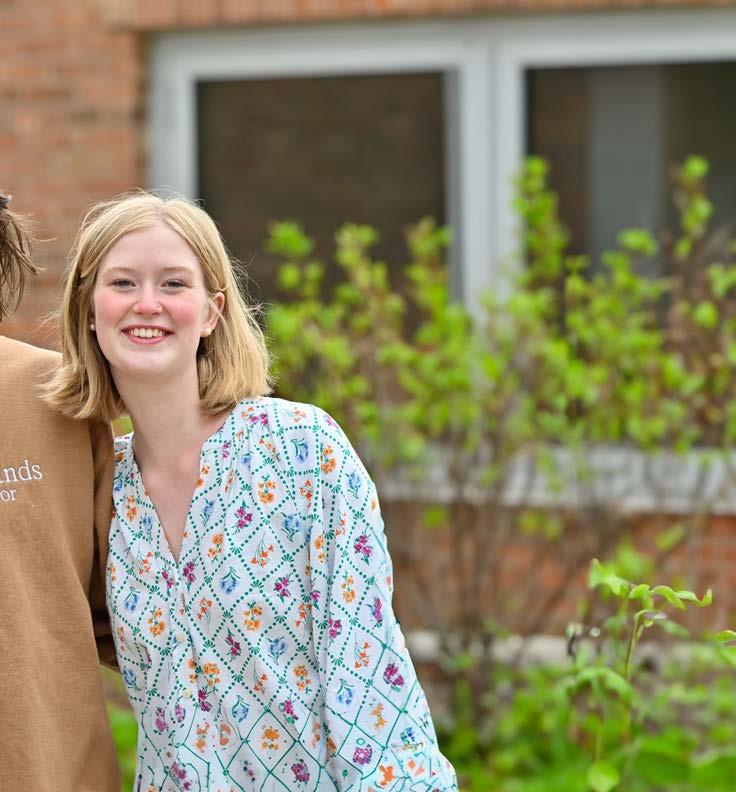
The best way to find out if a college is right for you is to visit. If you haven’t been to Northland yet, it’s time to plan a trip. Come and check out our campus. Get a feel for the buildings. Talk to people. Walk around and experience what your everyday life would be like.
Our admissions counselors are here to help. If you have questions, they probably have the answers. And if they don’t, it’s their job to find someone who does. So, call. Ask questions. We’ll help you get the information you need!
Here are a few more frequently asked questions.
What scholarships are available? All students receive scholarships from Northland College based on academic merit. Award amounts are calculated using an applicant’s high school GPA and ACT or SAT scores. Most scholarships or grants that Northland awards automatically renew each year.
What are your most popular programs?
Biology, business, natural resources, sustainable community development, and teacher education.
Will I get a job after graduation? We’ll do everything we can to help get you there—through internships, career counseling, alumni networking, and field research. Some 90 percent of recent Northland graduates are currently employed or in graduate school.
Can I bring a car as a freshman? All Northland students can keep their car on campus with a parking pass for the school year.
Do I get to pick my roommate? Freshmen roommates are assigned through a housing survey and matching process done by residential life. However, if you and another incoming freshman know each other and want to be roommates, you can request that match.
Northland alumni live in all fifty states and Washington DC, as well as Puerto Rico, Guam, the US Virgin Islands, at several US embassies and military bases, and throughout the world.
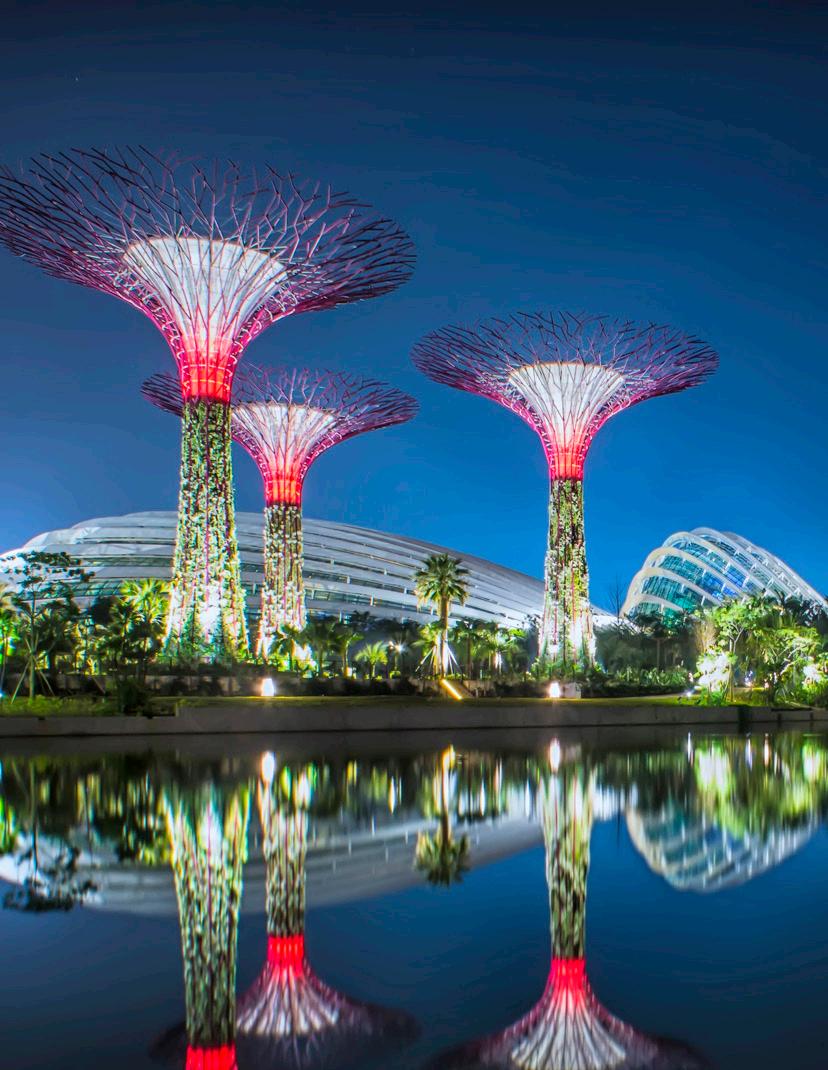

Ben Shepherd ’00 is a director at the international sustainable design firm Atelier Ten in New York City, where he has worked on numerous projects, such as Gardens by the Bay in Singapore.
“What I love most about my job is the variety of high-performance/ leading-edge projects we get to work on. Everything from healthier office and residential developments, to new carbon-neutral environmental centers and museums, to net-zero-energy airport terminals, and more climatechange-resilient cities.”
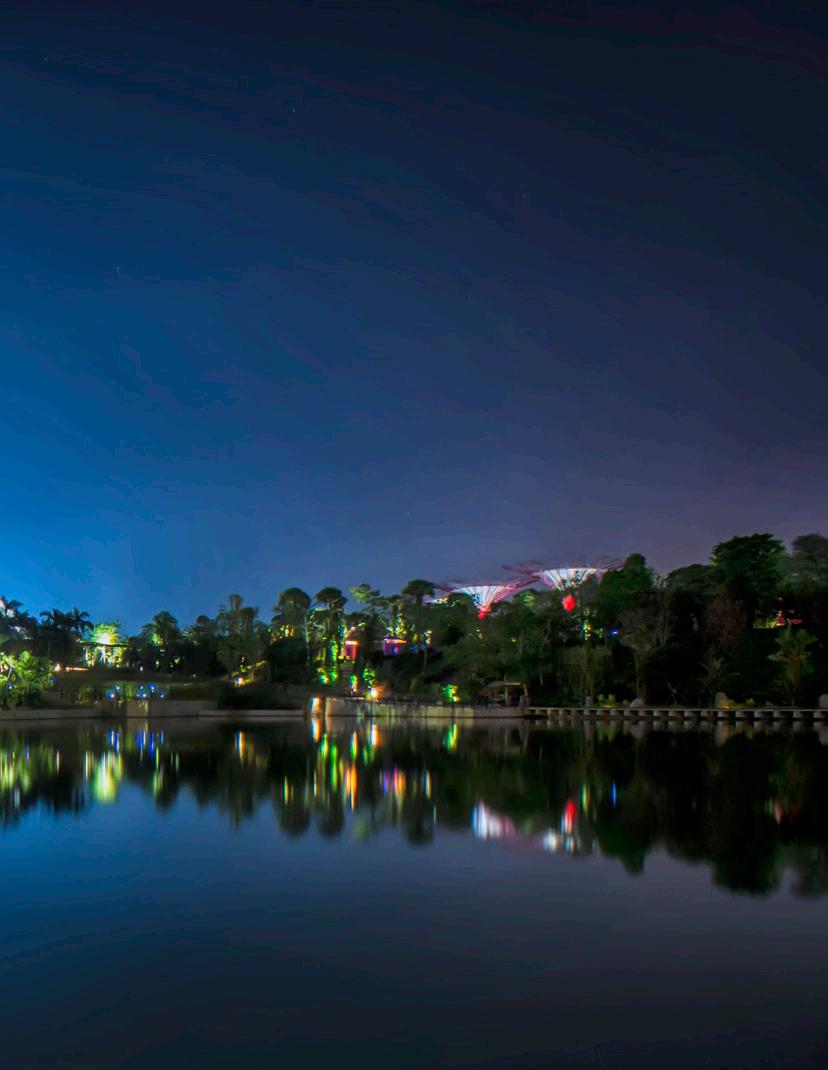
They've Worked For
AmeriCorps
BlueGreen Alliance
Boys and Girls Clubs of Greater Milwaukee
Eagle Point Solar
Francis Ford Coppola Winery
Great Lakes Indian Fish and Wildlife Commission
Kohler Company
Lion Conservation Fund
Milwaukee Institute of Art and Design
Minnesota Department of Human Services
NASA Goddard Space Flight Station
National Great Rivers Research and Education Center
National Science Foundation
US Antarctic Program
National Weather Service
Oakland A’s
Schlitz Audubon Nature Center
Shedd Aquarium
US Fish and Wildlife Service
US Geological Survey
US National Park Service
Wisconsin Department of Natural Resources and more . . .

At Northland, you will explore on your own terms— but not alone.
You will be mentored, challenged, and encouraged. You will find people who will be by your side for the rest of your life. You will find your direction.


